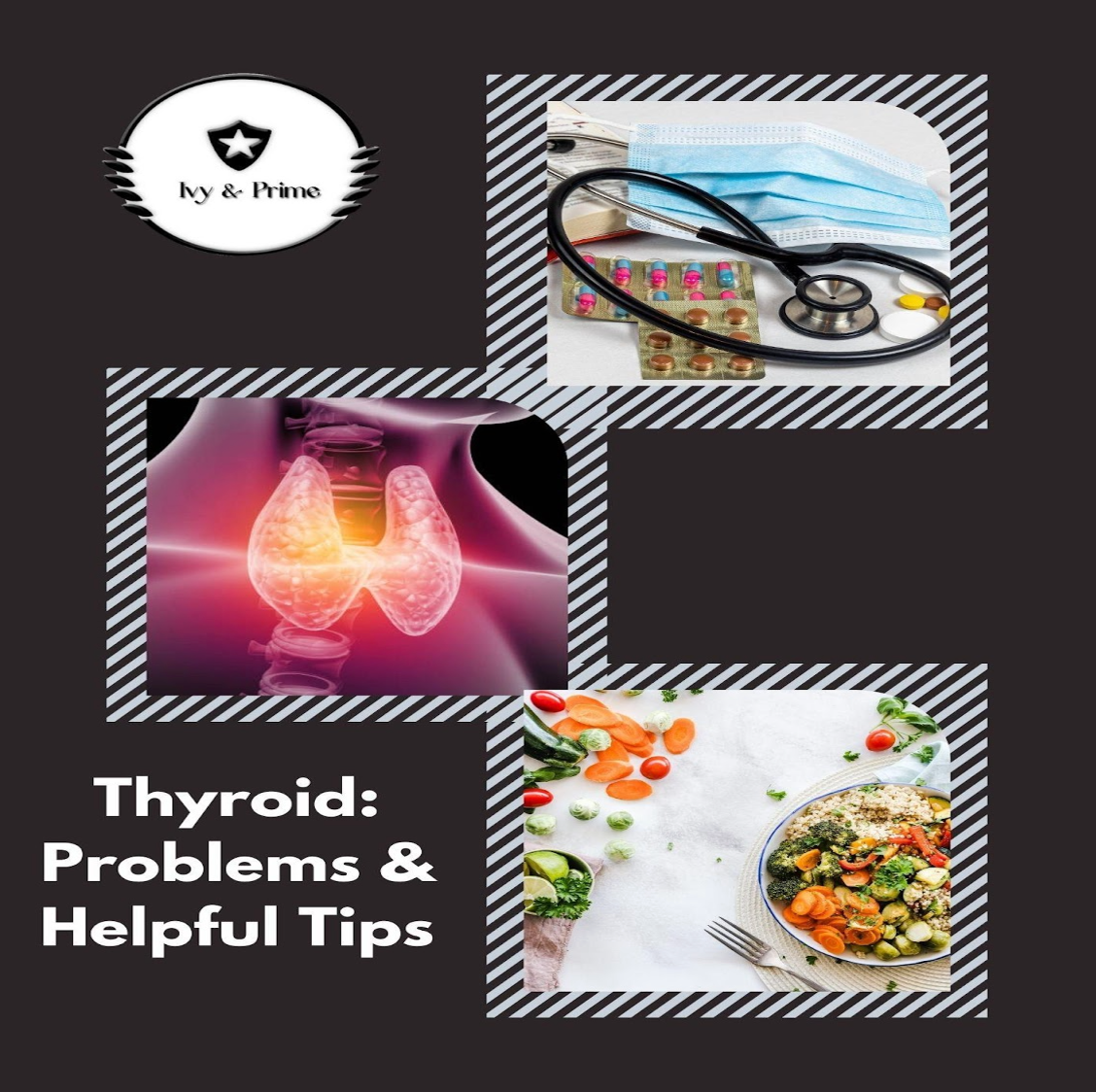The thyroid is a butterfly-shaped gland and lies below your Adam’s apple, in front of the windpipe. It secretes several hormones that help control growth, cell repair, and metabolism. If your thyroid isn’t functioning correctly, you may have one of many thyroid disorders including Goiter, Hyperthyroidism, Hypothyroidism, Graves Disease, etc. With the right food and medication, you can stabilize thyroid function and minimize your symptoms.
If your thyroid produces excessive hormones, then you have hyperthyroidism. An underactive thyroid gland, on the other hand, causes hypothyroidism. A common cause of hyperthyroidism is an autoimmune disorder called Graves' Disease. Another disease is thyroid nodules which are raised areas of tissue or fluid. If you have an enlarged thyroid, it is called a goitre. Thyroiditis is the inflammation of the thyroid and can induce symptoms of hypothyroidism and hyperthyroidism. Thyroid diseases can also affect your mood and weight.
If you suspect your thyroid isn’t working normally, please consult your doctor about thyroid testing. Make sure to ask all relevant questions. Please bear in mind that before taking any supplements you must consult a medical professional.
There are certain important nutrients required for a healthy thyroid. For a proper operating thyroid, iodine is required for thyroxine production. It is also important for pregnant women. Selenium activates thyroid hormones and has antioxidant benefits. Similar to selenium, zinc assists the body in regulating thyroid-stimulating hormone (TSH). Both zinc and selenium are found in eggs. Another important mineral, Vitamin D regulates calcium and phosphate production and keeps your bones strong.
Meats, fish, vegetables, fruits, and dairy in moderate amounts are very helpful for a healthy life. Of course, drinking plenty of water and exercising (with precautions) are essential. However, certain foods such as soy, certain vegetables, nuts, and other foods that contain goitrogens (compounds that hinder thyroid functionality) must be avoided if you have hypothyroidism.
Overall, it is very important to be aware of any thyroid issues you may have and make a robust plan to tackle them.
The medical information on this site is provided as an information resource only and is not to be used or relied on for any diagnostic or treatment purposes. Always seek the guidance of your doctor or other qualified health professional with any questions you may have regarding your health or a medical condition.
Here are some additional resources:
Thyroid disease: Can it affect a person's mood? - Mayo Clinic
Hypothyroidism diet: Can certain foods increase thyroid function? - Mayo Clinic
9 Foods to Avoid if You’re Diagnosed With Hypothyroidism - Everyday Health
Best Diet for Hypothyroidism: Foods to Eat, Foods to Avoid - Healthline
Hypothyroidism: Foods to eat and avoid - Medical News Today




